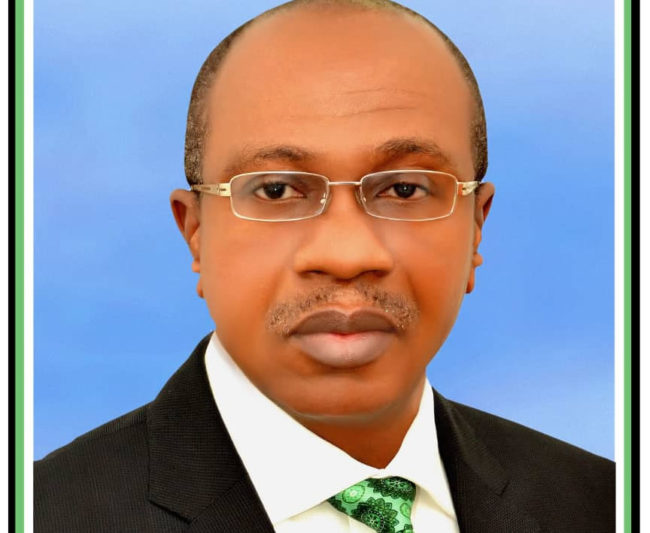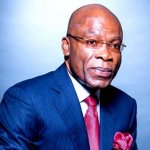Last week, Godwin Emefiele, Governor of the Central Bank of Nigeria, called on deposit money banks in the country to come to the aid of the economy through innovative approach to the development of the country. The CBN governor spoke at the 2016 Bankers’ Committee Retreat in Lagos. The theme of the retreat was “Economic Recovery: The Role of the Banking Sector.”
Emefiele reiterated that banks must come up with innovative solutions that would enable the finance sector play a key role in driving Nigeria’s growth and development agenda.
It would be interesting to hear from the mouths of bank CEOs what they think of the call by Emefiele. But as is customary of such occasions, no one will get to hear what the bank truly thinks of such calls. But I have no doubt in my mind that the CEOs would not be amused, and certainly for obvious reasons.
I cannot remember if there has ever been a time Nigerian banks have felt so much emasculated by government policies than now. When she visited Nigeria recently, Christine Lagarde, the Managing Director of the International Monetary Fund, spoke about the difficulties faced by Nigerian banks in 2015, saying that “the weakening oil sector is stressing [government and corporate] balance sheets and putting pressure on the banking system.”
Since then, banks have also been impacted by other factors including the implementation of the Treasury Single Account (TSA), which withdrew cheap government deposits in excess of N1 trillion from the banks; higher levels of non-performing loans as a result of decline in economic growth caused by fallen oil prices; and limited foreign exchange from the Central Bank of Nigeria to prosecute lucrative foreign currency transactions.
The TSA, policy of the President Muhammadu Buhari administration is one policy that has shaken many of the banks to their last capital. A CBN that takes away the lending power of commercial banks is not one banks would be in love with. This has resulted, for many of the banks, in higher staff and overhead costs, leading to a gale of sack. But neither the CBN nor the Buhari administration is however to blame for the travails of the banks.
Nigerian banks have long depended on government money, forex manipulations and round-tripping for solvency. They have done little to help the drive towards diversification of the economy, preferring to give short term credit facilities largely to players in the oil sector and rarely to the real sectors of the economy. According to Oxford Analytica, a London-based consulting firm, Nigerian banks allocated 23.8 per cent of their loans to the oil and gas sector in the first half of 2015, up from 10 per cent in the previous year.
Less than five per cent of their loan portfolios go to support manufacturing and far less go to agriculture and other sectors. Most of the banks have rarely supported CBN’s effort to develop commercial agriculture even when it gives special grants that are disbursed through the banks.
But there have been some notable exceptions; some banks are quite supportive of developmental agenda of the government. That is why the partnership between the Entrepreneurship Development Centre of the Pan African University and the Heritage Bank is such a refreshing idea. It is part of the bank’s strategies to identify and support Micro, Small and Medium Scale Enterprises in the country. If the economy is to quickly recover from recession and achieved desirable growth, experts have said the key is to support the growth of MSMSE.
Heritage Bank supports the EDC to organise and celebrate the “Global Entrepreneurship Week,” a celebration of the innovators and job creators, who launch start-ups that bring innovative ideas to life in order to drive economic growth and expand human welfare. The week comes up every November to inspire people everywhere through local, national and global activities designed to help them explore their entrepreneurship potentials. The GEW helps people in 160 countries unleash their ideas and turn them into promising new ventures-creating job opportunities, accelerating innovation and strengthening economic stability in the country and around the world.
The figures released recently by the Statistician General of the Federation, revealed that 26.06 million Nigerians were in the unemployment market by the second quarter of this year. The number was 24.5 million in the first quarter of the year. This is a disturbing trend that must worry every patriotic Nigerian, and especially the government whose job it is to create the enabling environment for job creation.
This is again why the Heritage Bank initiative is heart-warming and commendable. The bank, already well known for supporting small businesses in the country, has deliberately focused on SMEs in a laudable bid to create new entrepreneurs that will create the jobs that are badly needed in the economy. And this must be commended in view of the gloomy unemployment statistics for the country, which indicate high unemployment among the youths population-a potentially dangerous situation if not timely checked.
The week saw the bank chiefs, among other resource persons, discuss with SME operators and train them on a variety of issues relating to growing their businesses and creating more jobs. A statement from the bank said it believed that entrepreneurship and participation of women in the workforce are powerful accelerators for sustainable economic growth, although their potentials continue to remain untapped throughout the world. The Heritage-EDC partnership produced a total of 421 small business start-ups professionals this year alone.
As a follow up, the bank and EDC are providing new networks and better access to capital to help women entrepreneurs overcome barriers along their path to success and encourage others to follow their path. Dr Peter Bankole, the Director of EDC, said that this year’s event was unique in the sense that the collaboration with Heritage Bank produced “another set of vibrant graduates,” at a period when the nation is in need of their acquired skills to help equip them and others get the economy out of recession.
“Recession is bad for every sector in the economy, hence there is the need for individuals to wake up from slumber and take action, especially by attending subsequent editions of EDC/Heritage Bank programmers as solution,” he stated at the event. That was a call that should resonate with the CBN and other financial institutions in the country desirous of helping the country get out of recession and economic stagnation.
Heritage banks effort, unfortunately has attracted some negative spin known in the Nigerian palance as “Bad belle.” Some sponsored, baseless negatives stories have emerged in the social media recently about the bank’s solvency, and some faceless individuals or groups are behind this campaign to bring the bank down. But the CBN promptly debunked the story as false and embarrassing.
A statement by Isaac Okoroafor, spokesman of the apex bank said neither Heritage Bank nor any bank in the country was in distress, and as the regulatory authority of all licenced banks, it was its responsibility to know and take appropriate action. The bank therefore urged members of the public to ignore such vile insinuations about banks in the country.
The management of Heritage Bank also spared no word in debunking the wicked rumour. In a statement I regard as frank and candid, the bank said while it acknowledged the challenging operating environment currently being experienced in all sectors of the economy, it remained financially stable and had continued to discharge its obligations to all customers and stakeholders.
Heritage Bank’s statement read in part, “This position is buttressed by the commendable results posted by the bank in the past financial year and the last three quarters of 2016, resulting in shareholders’ approvals to list its shares on the Nigerian Stock Exchange within one year of its business combination with the erstwhile Enterprise Bank Limited.”
We commend the efforts of the bank in creating products targeted at the Small and Medium Scale group and urge that other banks follow suit as our nation strives to overcome her current economic challenges.
Omokwe wrote in from Umuahia, Abia State; ifeanyiomokwe@gmail.com





